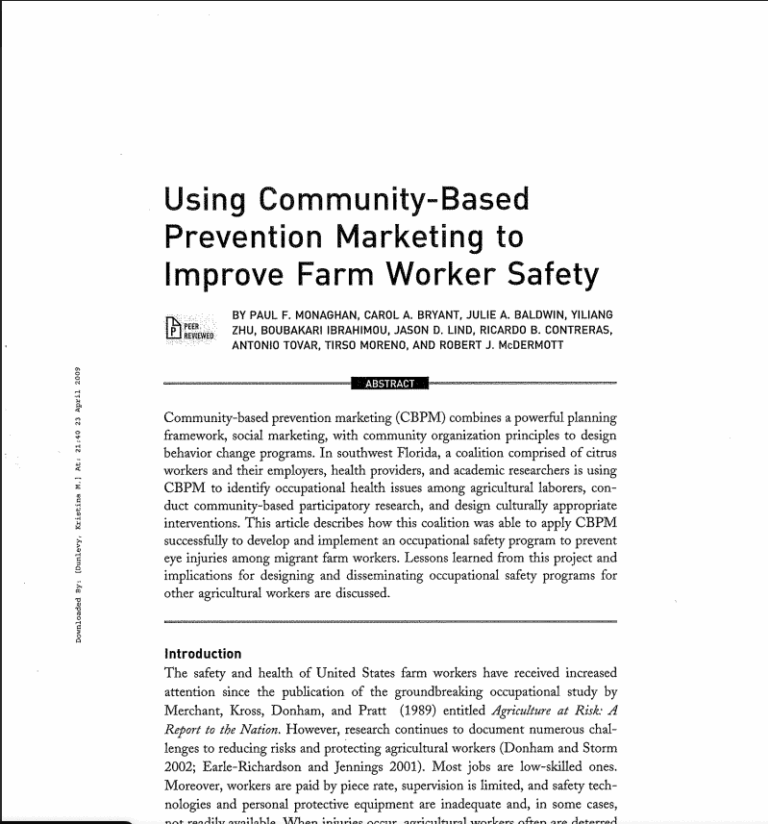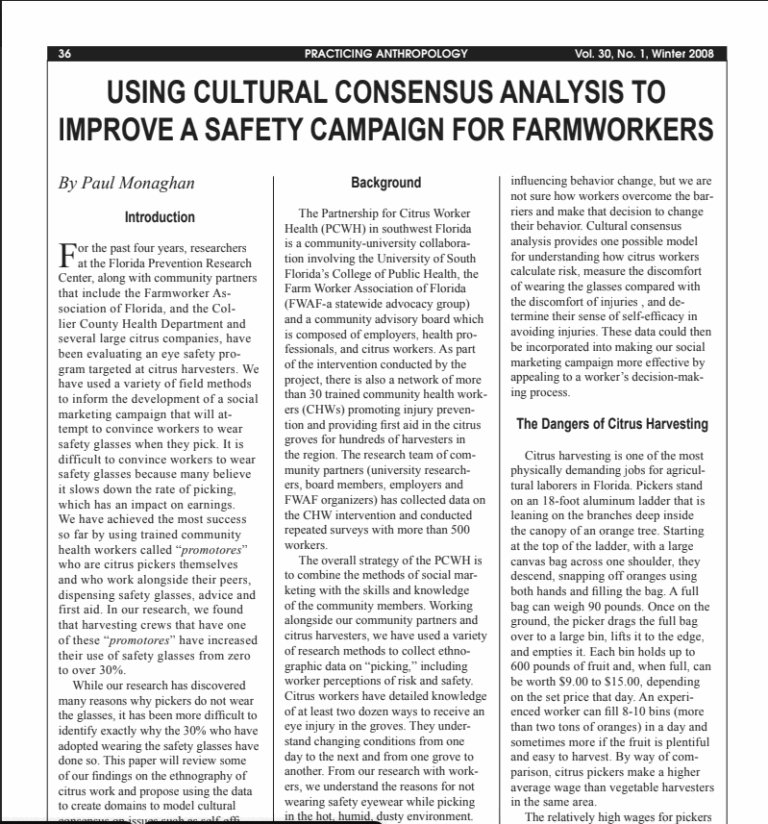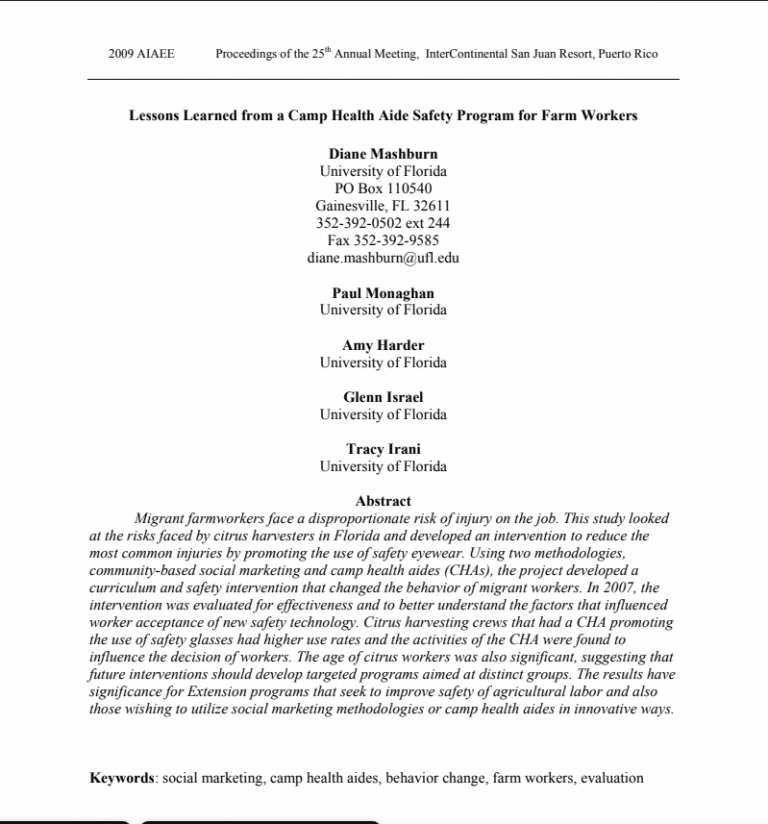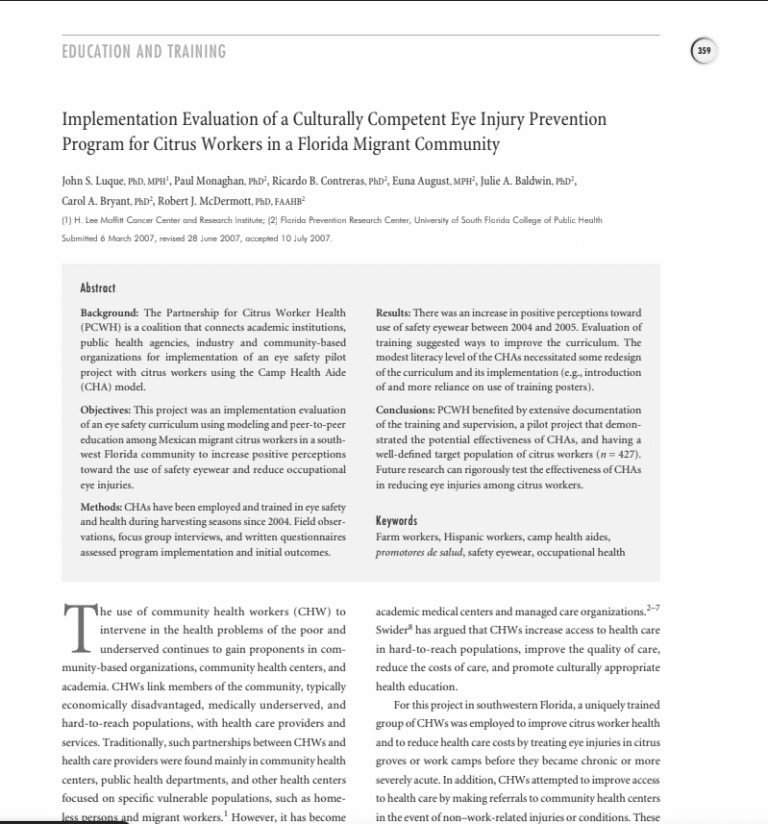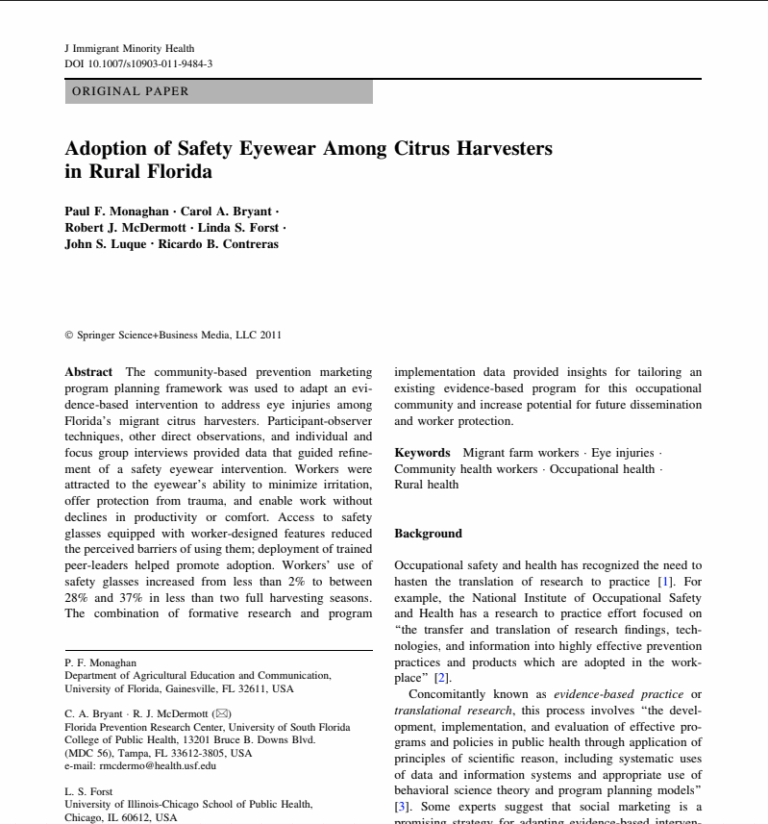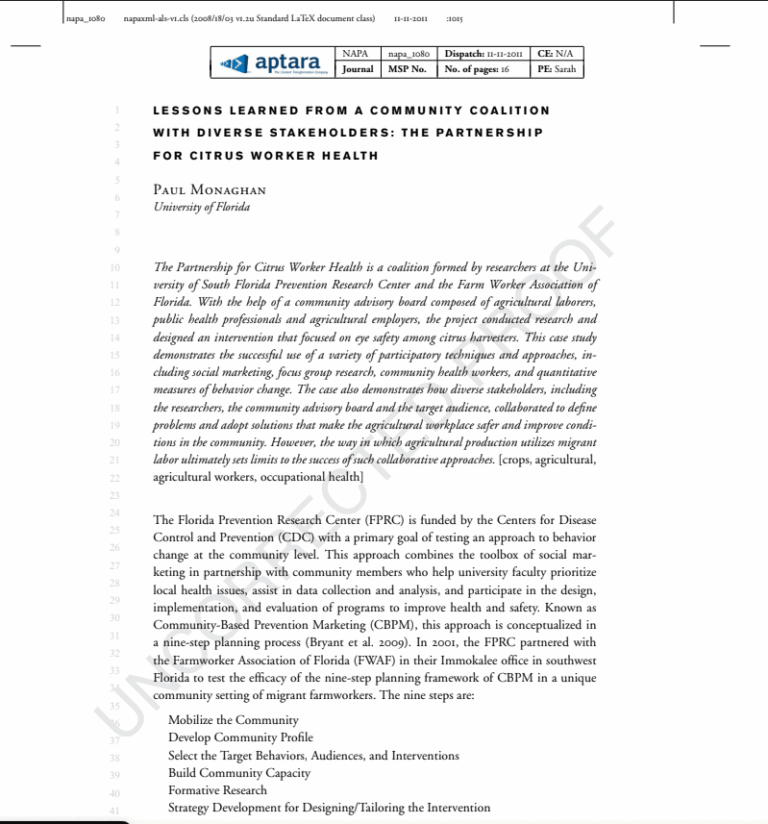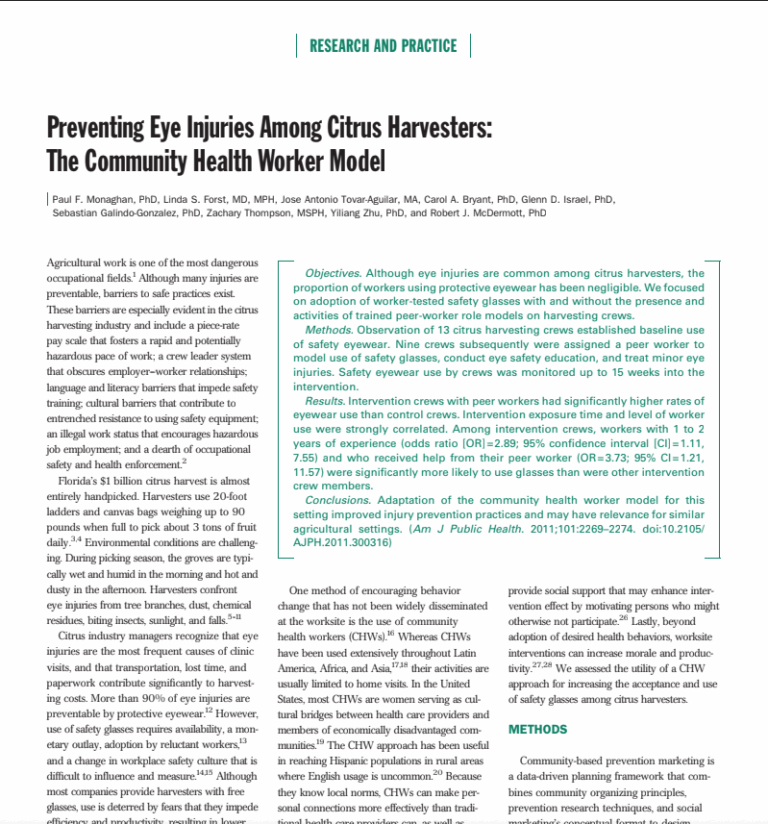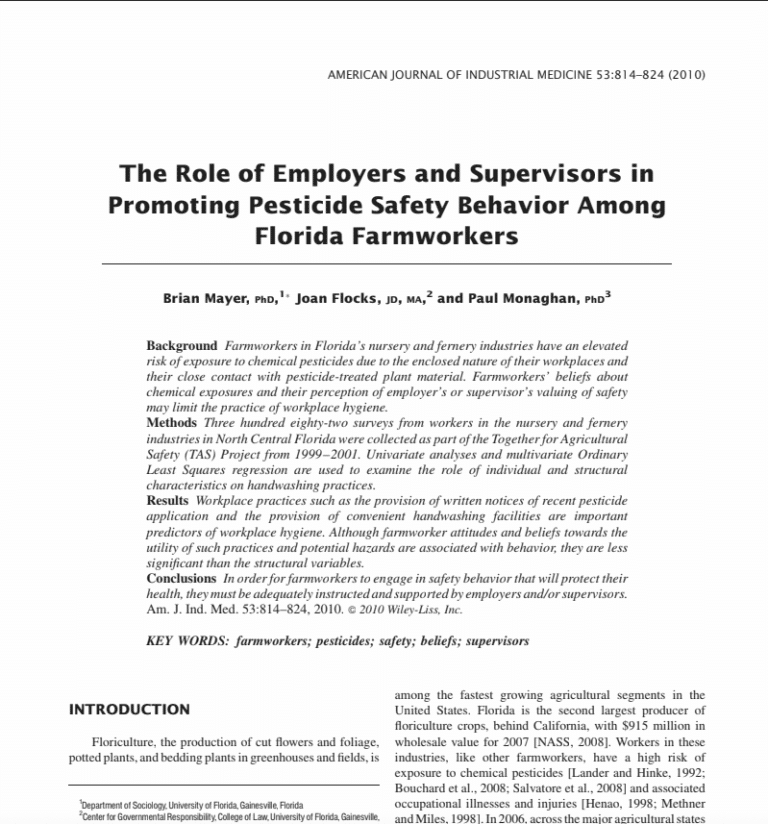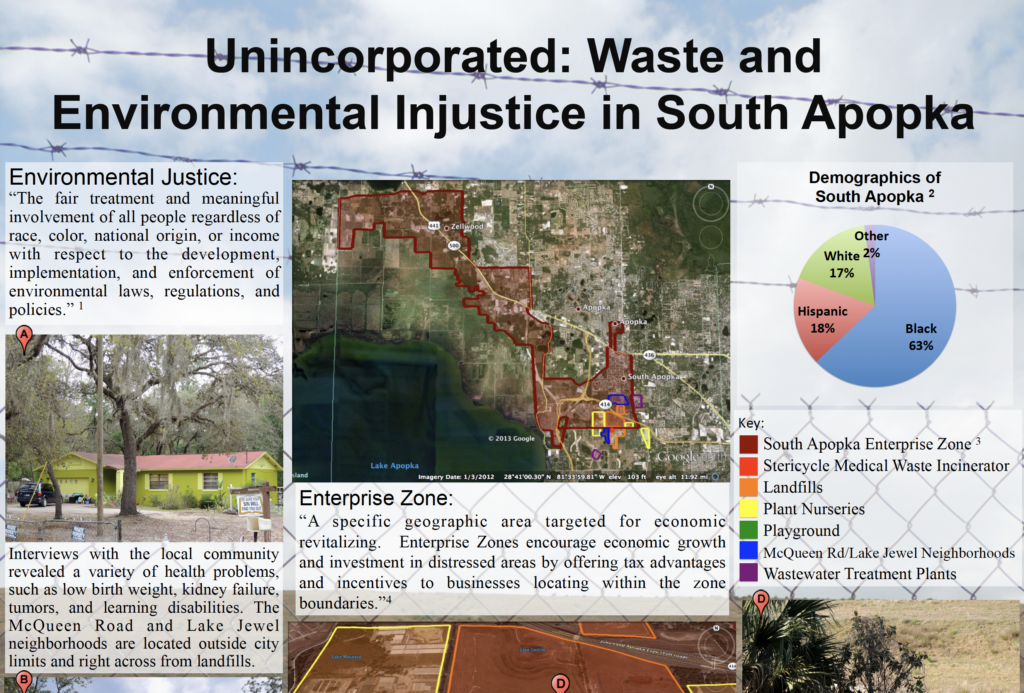Research Projects
The effects of pesticide exposure and heat stress on farmworker health has been appallingly understudied. In an effort to bring attention to farm worker health problems and to reduce the adverse effects of pesticide exposure, FWAF has conducted community health surveys and has been the community partner in two areas.
FWAF continues to work with different research partners to bring to the fore of the national conversation the health disparities farmworkers and their families suffer and through research find solutions to bridge the gap between those health disparities and positive health outcomes.
Although there remains a lot of work to be done to redress the centuries of structural disparities that have made and keep farmworkers as one of the most vulnerable populations and occupations, FWAF’s involvement in research has as its aim to benefit not only farmworkers’ health, but also address the daily changes they face at a time where their work is almost invisible and so little appreciated.
Academic Research Papers
Current Research Projects
The Farmworker Association of Florida is currently engaged in research projects to help bring attention and address some of the most pressing health inequities affecting farmworkers in Florida today.
We have been collaborating with Emory University’s School of Nursing for almost 10 years to study the effects of heat stress on agricultural workers. The short term effects of dehydration can include dizziness, vomiting, and heat stroke resulting in death. Long term effects can evolve into hypertension, kidney damage, and even kidney failure. These effects are exacerbated by lack of access to healthcare and adequate compensation. We continue to advocate for the recommendations of the Occupational Safety and Health Administration (OSHA) to bring more water, more breaks, and more shade to farmworkers and all workers exposed to heat.
We are also working with Florida State University to develop pesticide training materials that are culturally appropriate for Hispanic and Haitian farmworkers. The Spanish material has been approved by the Environmental Protection Agency and in the next phase of that project we will develop the material in Haitian Creole. Our aim through that collaboration is to make health and safety protections more accessible to farmworkers in Florida and in the rest of the United States.
As a result of the COVID-19 pandemic outbreak, we have collaborated with the University of Florida and Emory University to make active and antibody testing more accessible to our communities and at the same time share information on how to best protect themselves against the Coronavirus amid misinformation about the spread of this deadly infection.

